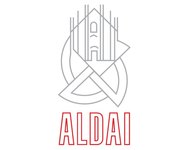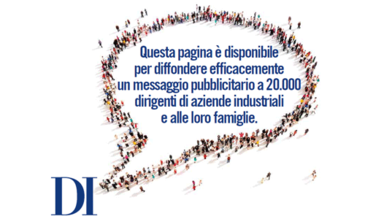Global Business Leaders
Paolo Fanti interviews Anne Battersby and Helen Stenbom trainers and coaches

MANAGER EVOLUTION a cura di Paolo Fanti

Paolo Fanti, Revisore e Coord. Comm. Manager Evolution Quadri e Manager apicali Federmanager Bologna-Ferrara-Ravenna
Anne and Helen First of all, I would like to start from a book you have published with a meaningful title "Discovery Prism": what perspective and what vision does this tool offer?
If we start
from the premise that effective leadership includes engaging the head and the heart,
then the Discovery Prism gives organisations a framework and a
methodology to do this. It’s about connecting the dots between important
business tenets to create alignment across stakeholders which lifts engagement
and performance. The book shows how to connect the dots in a simple way to
magnify the positive energy in your business making all the difference to how
an organisation navigates the complex, fast-paced challenges of the 21st
century.
The Discovery
Prism is a question-based framework that comprises six lenses, each
representing a key business theme. The
three circular lenses ask the questions: Where are we heading and when
will we get there? (vision); why do we exist and how do we behave
towards each other? (bigger purpose and
core values); whom do we serve and what is our business? (stakeholders
and mission).
By overlapping
the three circular lenses, a further three lenses are formed: legacy, promises
and strategy. Together all colours
overlap to form the white light of the prism at the centre.
The energy an
organisation invests in answering all the key questions contributes to
something that is much greater than the sum of its parts.
Typically,
organisations will address some business themes (most often the circular lenses
vision, purpose, and strategy), but they forget about the overlaps, or pay key
areas only surface attention.
We believe
that by working to explore all the lenses through dialogue, in a collaborative
way, an energy will be released that has positive contagion. This is the gift
of the prism at the centre of the Discovery Prism and the reward for engaging
in the discovery work.
The more all
members of an organisation are included in the process, the more they buy into
the outcomes and are motivated and engaged making a direction connection to
overall performance and outcomes.
It is common
knowledge that there are organisations that work and others that do not. There are
effective leaders and others that are disastrous. Million-pound question: why?
There is so much research to show the kind of leadership that positively impacts the culture of organisations. The Gallup organisation talks about why people follow leaders who are trustworthy, who care about stakeholders, who provide stability and give hope. Goleman talks about positive styles of leadership which are visionary and empowering. At GBL we define positive leaders as those who create leaders of their followers. Why?
Because to do that you have to be free of ego and motivated by the good of the whole. Often companies promote people with the opposite characteristics like “command and control” leaders who care mostly about themselves and who have one driving force – to gain personal reward and power. These leaders may achieve certain results in the short term through fear or a surface charisma, but this is not sustainable. Where there is no healthy systemic perspective, an organism will destroy itself, in the same way as cancer cells work in the body. The question then becomes, why do we promote leaders with these characteristics?

So, in your
opinion what are the main characteristics of 21st century leaders? And how to
train these skills?
In “The Prism”,
chapter 8 of our book, we talk about the desired characteristics of 21st
century leaders. Just as the Discovery Prism framework promotes a holistic
perspective of all aspects of an organisation, we talk about the personal
qualities of an integral leader as someone who operates close to their full
human potential. They demonstrate congruence of thought, word, and action. They
are values-led, people of integrity who inspire trust and have nothing to
defend so can explore with an open perspective. The potential for blind spots
is reduced because they are open to feedback and connected to the realities
around them as a platform to create what could be. They care deeply about their
followers as human “beings”, not just human “doings”.
The most
recent studies during and post the Covid-19 pandemic confirm the need for
leaders to shift focus from performance to people, from control to adaptability
and from hierarchy to working together. Where leadership reflects the values of
“humane”, “vulnerable”, “authentic” and “humble”, organisations can be places where
people thrive. Organisations with these kinds
of leaders are open, connected to their environment and the society they live
in, nurturing innovation for a sustainable future.
How do we train these skills?
Frameworks exist
to show us criteria and methodology for making decisions, for delegating, for coaching
others, but we know that the qualities we talk about are not just trained by
following an on-line course or reading a book. The ideal is to have known a
model who has demonstrated these qualities- a parent, a teacher, a manager, or
mentor. When we see someone creating positive outcomes where conflict could
have resulted or creating trust with a variety of stakeholders or multiplying
the capacity of the team through inspiration and vision, we are inspired by
living examples.
If not, external help is also at hand. GBL
offers both 1 to 1 coaching development and facilitated courses for groups in
organisations. Both help raise awareness of where you are now in terms of the
impact you have on yourself and others and where you want to be. We help raise
awareness, identify the shift that needs to happen, the blocks that get in the
way as well as the strengths and resources that will help along the journey. This
holistic and systemic approach creates the possibility of real change, not to
be someone different, but to be more of the potential leader you can be.
In summary
You can see who
someone is by the way in which they do things. Similarly, how a leader leads
will show who he or she is. The Discovery Prism framework helps an organisation
discover the reality of what it is, the impact it is really having internally
and externally and what it needs to do to be true to its purpose. The insights
and clarity resulting from the exploration will lead to a more aligned
organisation that connects the dots impacting its leadership and culture, its
brand, its strategy and the legacy it leaves.

 Localizza
Localizza 




 Stampa
Stampa
 WhatsApp
WhatsApp


